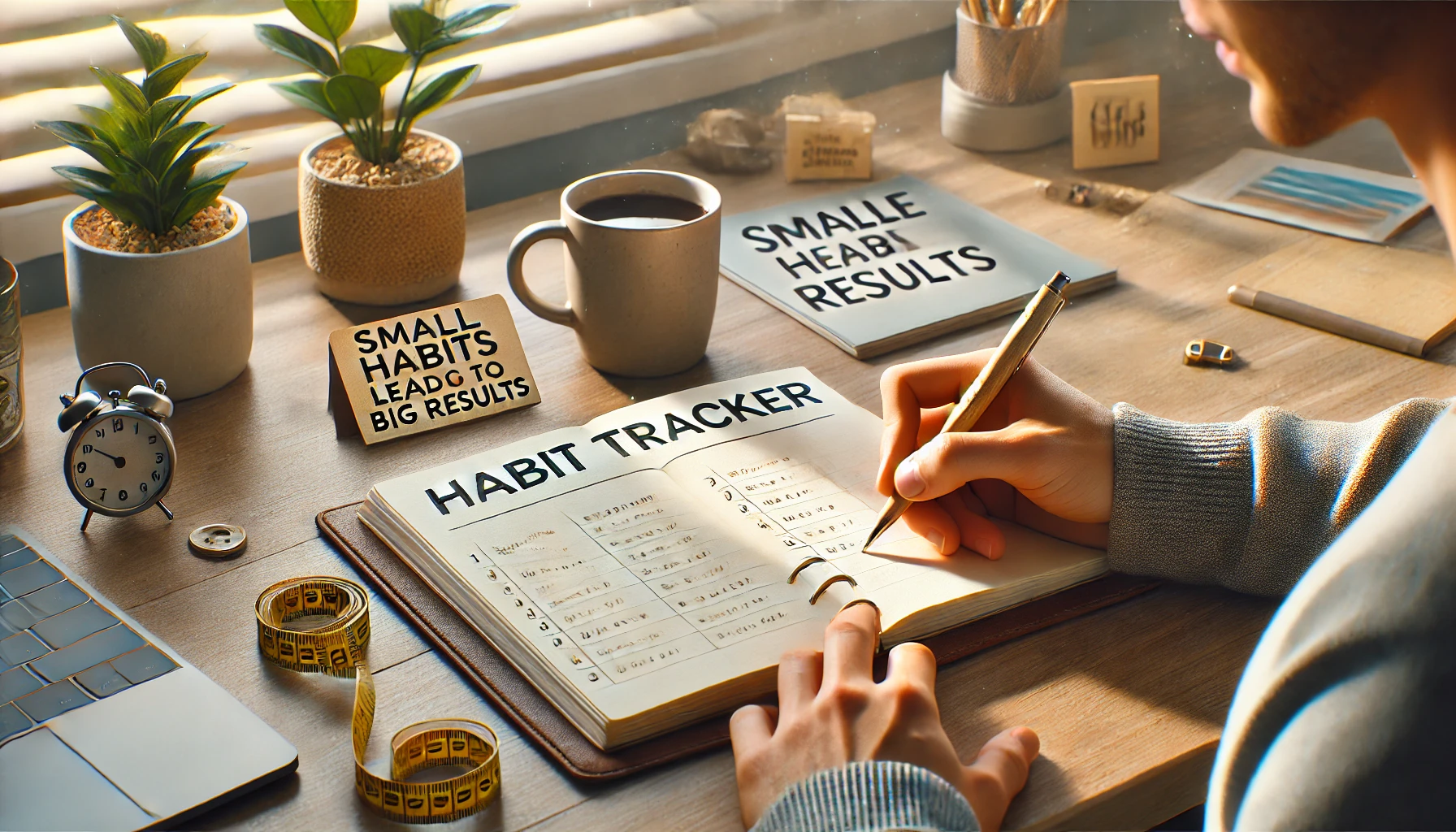Success is not built overnight—it is the result of consistent small actions that accumulate over time. Whether you want to improve productivity, build confidence, or adopt a healthier lifestyle, the power of small habits can transform your life without feeling overwhelming.
Many people believe that big changes require big effort, but in reality, small, repeated behaviors create the most significant long-term impact. This principle, popularized by James Clear in “Atomic Habits”, shows that tiny improvements lead to exponential growth over time.
In this article, you’ll learn why small habits matter, how they compound into major results, and practical ways to implement them in your daily routine.
Why Small Habits Have a Massive Impact
Every action you take reinforces your identity and shapes your future. When you commit to small, daily improvements, you create positive momentum that leads to long-term success.
The Science Behind Small Habits:
- Habits work by rewiring the brain through repetition.
- The 1% Rule states that if you improve by just 1% each day, you will be 37 times better in one year.
- Small habits are easier to maintain, reducing the risk of burnout or failure.
Example: If you read one page per day, by the end of the year, you will have finished an entire book.
Now, let’s explore how to build and sustain powerful small habits.
How to Build Small Habits That Create Big Results
1. Start Incredibly Small (Make It Too Easy to Fail)
The biggest mistake people make is trying to change too much at once. Instead, make your new habit so small that it feels effortless.
Examples of Tiny Habits:
- Want to exercise? Start with 1 push-up per day.
- Want to read more? Read just 1 sentence per day.
- Want to drink more water? Take one sip in the morning.
The key is consistency over intensity—once the habit is established, you can naturally increase the difficulty.
2. Use Habit Stacking to Make Habits Automatic
Habit stacking is a technique where you attach a new habit to an existing one.
Formula: “After [current habit], I will [new habit].”
Examples:
- After brushing my teeth, I will do 10 squats.
- After pouring my morning coffee, I will read one page of a book.
- After finishing lunch, I will write down one thing I’m grateful for.
By connecting habits, you eliminate the need for willpower, making new behaviors automatic.
3. Design Your Environment for Success
Your surroundings play a huge role in habit formation. Make small adjustments to reduce friction for good habits and increase friction for bad habits.
How to Make Good Habits Easy:
- Want to read more? Keep a book on your nightstand.
- Want to drink more water? Place a bottle next to your desk.
- Want to eat healthier? Stock your fridge with pre-cut fruits and veggies.
How to Make Bad Habits Harder:
- Want to reduce social media use? Remove distracting apps from your home screen.
- Want to stop snacking at night? Store unhealthy foods in a hard-to-reach place.
Your environment should encourage the behavior you want to develop.
4. Track Progress to Stay Motivated
Tracking small habits helps maintain consistency and build momentum.
Ways to Track Progress:
- Use a habit tracker or journal.
- Check off completed habits on a calendar.
- Use an app like Habitica or Streaks.
Pro Tip: Focus on progress, not perfection—if you miss a day, restart the next day instead of quitting.
5. Use Immediate Rewards to Reinforce Good Habits
Since small habits don’t show immediate results, creating short-term rewards keeps motivation high.
Examples of Instant Rewards:
- After completing a workout, watch your favorite show.
- After writing in a journal, drink a cup of tea.
- After finishing a task, celebrate by checking it off a list.
The brain responds to rewards, making habits easier to maintain.
6. Focus on Identity-Based Habits
Instead of focusing on what you want to achieve, focus on who you want to become.
Example:
Instead of “I want to run a marathon”, say “I am a runner.”
Instead of “I want to read more”, say “I am the kind of person who reads daily.”
When you shift your mindset, small habits become part of your identity rather than just tasks to complete.
Real-Life Examples of Small Habits Leading to Big Results
Health & Fitness:
- Walking 10 minutes a day can lead to a stronger heart and better endurance.
- Cutting one sugary drink per day can lead to significant weight loss over a year.
Productivity & Learning:
- Writing one sentence per day can turn into a full journal or book over time.
- Practicing a new skill for 5 minutes daily leads to proficiency over months.
Mindset & Personal Growth:
- Expressing gratitude once a day leads to a more positive outlook on life.
- Meditating for 2 minutes daily can reduce stress and improve focus.
These small, consistent actions compound into massive changes over time.
Final Thoughts
Success is not about making huge changes—it’s about making small improvements consistently. By focusing on tiny, repeatable actions, you create long-lasting positive habits that transform your life.
Start small, stay consistent, and watch how these micro-habits lead to extraordinary results over time!
